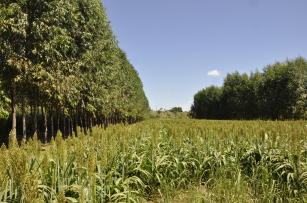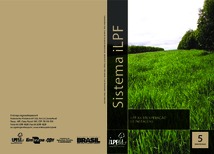Research shows advances in sustainable Brazilian agriculture
Research shows advances in sustainable Brazilian agriculture
Research sponsored by the ICLFS Fostering Network, elaborated by the Kleffmann Group with technical support from Embrapa Environment, has demonstrated that the Brazilian agricultural sector has adhered to the use of Integrated Crop-Livestock-Forestry Systems (ICLFS) in Brazil.
According to the data, in recent years considerable increments in ICLFS adoption in Brazil have taken place. Among animal farmers, in the last five years, the increase was 10%. The growth among grain producers can be rounded to 1% every five years.
Results show a high level of technological adoption with consequent benefits associated with improved efficiency in production systems and their capacity to adapt to possible negative effects of climate change. Through research, it is possible to diagnose Brazilian farmers' adhesion to sustainable productive intensification with integrated agricultural systems. The advance entails increments to production systems' capacity to adapt to the challenges imposed by climate change, and a boost to biological and economic gains resulting from the increased efficiency in production systems. All this effort contributes to the achievement of the voluntary commitments Brazil pledged at the United Nations (UN) Climate Change Conference COP-15 and revised in Paris at COP-21.
The Brazilian commitment is to decrease greenhouse gas (GHG) emissions from 36.1% to 38.9% by 2020, in comparison with the 2005 emission baseline. The agreement was incorporated into the National Policy on Climate Change (Law no. 12187/2009), through the Sectoral Plans for Climate Change Mitigation and Adaptation.
In the agricultural sector, the commitments were established by the "Sector Plan for Climate Change Mitigation and Adaptation for the Consolidation of a Low Carbon Economy in Agriculture", also known as ABC Plan from the acronym in Portuguese.
Read more
ICLFS adoption reaches 11.5 milion hectares
Learn more
- The ABC Plan established progressive change to the greenhouse gas emission trajectory through the adoption of technologies that can reduce the intensity greenhouse gas emissions or increment removals. One of the investments is in integrated production systems, such as ICLF systems, for which the goal established was an expansion in four million hectares at system adoption level by 2020, which represents a potential supply of between 18 and 22 million tons of CO2eq.
- The Brazilian government's ratification of the Paris Agreement on Climate Change in 2016 strenghtened actions from the abovementioned Plan, as it included in its Intended Nationally Determined Contribution (INDC) the increment of another five million hectares with ICLFS, totalling nine million hectares by 2030.
- ICLFS is a strategy that comprises the crop, livestock and forestry components in rotation, intercropping, or succession, in the same area, and variations. Several production systems and associated technologies synergistically integrate such strategy to provide gains not only in terms of production and productivity, but also in environmental and social benefits.
- Carbon in agricultural soils is synonymous with fertility.
- Maintaining fertility in tropical soils is a challenge that involves a continuous process of planning and management. Structured long-term management to foster the maintenance of tropical soil fertility will potencialize structural benefits.
- Climate change can pose new challenges for the agricultural sector, in view of the sector's vulnerability. It is only with investments in science and technology that it will be possible to make use of alternatives to counterbalance possible negative impacts.
- Extra resilience and the availability of technological options are key strategies to ensure the competitiveness of the agricultural sector in an extremely competitive and challenging market.
- The ICLFS Fostering Network is a public-private partnership formed by the companies Cocamar, Dow AgroScience, John Deere, Parker, Syngenta and Embrapa. The network's main goal is to accelerate a broad adoption of integrated crop-livestock-forestry systems by farmers as part of an effort aimed at the sustainable intensification of Brazilian Agriculture. Initiated in 2012, it is co-financed by private companies and by Embrapa, supports a network of over 100 Technological Reference Units distributed in all Brazilian biomes, and involves the participation of 19 Embrapa research centers.
Marcos Vicente (MTb 29.027/MG)
Embrapa Environment
Press inquiries
meio-ambiente.imprensa@embrapa.br
Phone number: (19) 3311-2611
Further information on the topic
Citizen Attention Service (SAC)
www.embrapa.br/contact-us/sac/



